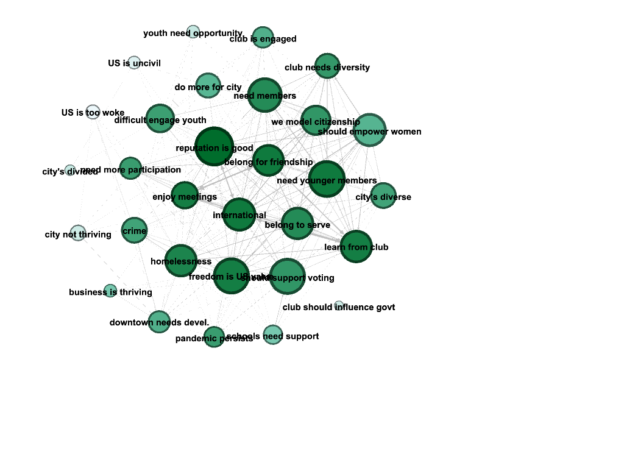Recently, hearing a distinguished technologist talk about the ethics of artificial intelligence (AI), I recognized a familiar style. People in a given technical field realize that they face an ethical issue. They turn to the relevant academic discipline (philosophy), and they think that they discern a set of available ethical “systems.” These options include at least utilitarianism and Kantianism/deontology. They apply each system to the issue at hand and explore its apparent conclusions. The various systems seem to disagree about at least some cases, and the analysts conclude that ethical questions are hard and unresolved and that people who happen to start from different premises will probably reach different conclusions. The last slide of the PowerPoint is a head-scratcher about the difficulty of ethical reasoning.
I suspect that these “systems” look authoritative because they have been discussed in vast numbers of peer-reviewed publications. If you want to mention deontology, you can cite Kant (1788) and innumerable subsequent works. For utilitarianism, you have Bentham (1789) and its successors. (See Stahl 2021 as just one example.) In a technocratic world, this form of authority seems weighty. You are not just expressing a personal opinion if you can mention a book that has thousands of citations.
The mental model behind this kind of analysis also resembles technical forms of reasoning. The various philosophical systems are seen as very general and internally consistent premises that generate conclusions algorithmically. Ethics is treated as a Normal Science.
To be fully satisfactory, a system’s premises should apply to all cases. Trolley-problems and similar thought-experiments are fascinating because they suggest that the general premises of different systems conflict in select cases. Different algorithms yield different results. The methodological assumption is that analyzing such exotic thought-experiments should clarify principles that will then apply universally. Since this method doesn’t seem to have succeeded (yet), the analyst is entitled to conclude that ethics is unresolved. Hence the last slide of the presentation is about not knowing what to do.
It is often acknowledged that there are more than two or three ethical views for which we can provide fancy citations. What about Thomism, Stoicism, Marxism (of various flavors), feminism, the Five Precepts of Buddhism, Confucianism, African “Sage Philosophy” as explored by H. Odera Oruka (1990), deep ecology, Nietzsche, Levinas, etc. etc.? The notion that there are two or three available systems has a specific history in secular, 20th-century, Anglophone philosophy departments, and it was always controversial even there.
Then again, when people extend the list of available philosophies, often they reach even more relativist conclusions. If “systems” from distant times and places disagree, then surely there can be no right answers. Now the PowerPoint really ends with a head-scratcher.
But in order to conduct this kind of analysis, one must assume that very general premises should apply across all relevant cases. In other words, the appropriate units of analysis are broad generalizations. It is either right or wrong that we should maximize aggregate welfare or that we should treat people as ends rather than means.
One of the leading systems, deontology, may not purport to generate guidance about specific cases. In the Shadow of God (2022) Michael Rosen gives an up-to-date argument that Kant did not intend for his principles to answer questions of applied ethics. If that’s true, then it’s a bit odd to treat utilitarianism and Kantianism as rival “systems.” Utilitarianism might even be the only available philosophy that can really work like an algorithm, and only in some of its forms.
If you are a particularist, you believe that generalizations are not the appropriate units of analysis. What is right or wrong is the specific act, not the generalization. Most people aren’t true particularists, but many are somewhat leery of pure abstraction. We presume that general ethical statements can have some validity and value but that generalizations rarely settle particular cases.
I like Jonathan Dancy’s aesthetic analogy: the best object of judgment is a painting, not a feature (like a splotch of red paint) that recurs in many paintings. Aesthetic judgment is holistic, and the whole is the work of art. Likewise, ethical judgment is often about a whole ethical situation that has many features, not about each feature taken abstractly.
One irony is that applied ethics derives its authority from the academic discipline of philosophy, yet not very many current philosophy professors apply ethical “systems” to cases. I think that approach comes most naturally to technologists who expect reasoning to be algorithmic, whereas philosophers are often humanists who prefer close readings and thick-description.
The applied ethics that I admire most is much more attentive to the empirical and pragmatic details of specific cases, much more closely engaged with the dilemmas of practitioners, more focused on real situations instead of thought-experiments, and more open to normative insights from a range of sources (literature, history, folklore …). It aims to address problems, not to provoke skepticism. And it accepts responsibility for its own consequences.
My favorite applied ethicists work in the world (almost always with collaborators) and are willing to reflect on whether the outcomes are good or bad. Their final PowerPoint slide says: “This is what we’re building, what we hope to accomplish, and why. What do you think about it?”
See also why ambitious ethical theories don’t serve applied ethics; how we use Kant today; analytical moral philosophy as a way of life.

